Our Constitution and the debates leading to it make clear our founders assumed citizens would enjoy five great liberal democratic freedoms: speech, association, religion, fair trial and the right to hold property. In The Tyranny of Tolerance, Peter Kurti takes one of these foundational freedoms – religious liberty – and exposes it to clear light in contemporary Australia. The title’s by-line ‘Threats to Religious Liberty in Australia’ signals before opening that the book is concerned with what is now conventional wisdom; that religious freedom in Australia is under threat in ways not previously experienced or foreshadowed.
This is a very good book and it is an important book. In a nation at best complacent about its freedoms and largely ignorant of the centuries-long institutional underpinnings that maintain its success as a relatively young liberal democracy, Kurti’s is an important voice. It is a voice of reason, learning and tolerance. We should celebrate such a book and we should do more to encourage contributors like Kurti to take their words and ideas into the public space and teach, persuade and disseminate.
The book is a collection of essays organised into distinct chapters based on Kurti’s body of work for the Centre for Independent Studies’ Religion and Civil Society program. The result is that its short 200 pages can be easily devoured in a single sitting or digested chapter by chapter in no particular order.
Despite its author having scholarly inclinations – Kurti is a clergyman with degrees in law, theology and philosophy – the book is extraordinarily readable, accessible, even punchy. This undoubtedly reflects the clarity of thought of an author who has spent most of his adult life – whether in professional, academic or pastoral pursuits – deeply immersed in the subject matter.
The book is primarily concerned with threats to religious freedom and their provenance. Kurti deftly explains why this is happening in modern, secular Australia. He explores the many recent examples where Australian Christians have had their benign, mainstream beliefs and practices challenged. In a chapter dedicated entirely to the totemic issue of the burqa, Kurti decodes the myriad and complex issues that require a liberal democracy to balance the right of an individual to live in obedience to a religion with the broader obligation of the state to maintain social cohesion. Kurti recognises that religious freedom walks hand in hand with freedom of speech and association. The book traverses topics such as same sex marriage, Safe Schools and 18C, which are approached with characteristic rigour and level headedness. Kurti sees these as related, in that the forces mobilised against believers are the same forces that pursue the cult of ‘inoffensiveness’.
Kurti’s personal line in the sand may be revealed by his position on the burqa. He says a Muslim woman who habitually wears a niqab or burqa should be required to remove it to show her face in order to give evidence in a court. However he approves of a decision of a Canadian court which insisted a Muslim woman swearing an oath of allegiance in a citizenship ceremony be permitted to wear a niqab. Kurti embraces the idea that wearing a head covering in a citizenship ceremony can be reconciled with dual duties as a Muslim and a citizen. In carving out these and other positions Kurti returns to the persistent theme that freedom of religion is a fundamental human right attaching to individuals, rather than the identity of a group.
The book will find no favour with fringe dwellers. For the aggressive secularist it is simply too respectful of religion: ‘religion involves the human pursuit of ultimate meaning and value’. By the same token an aggressive cultural conservative might find Kurti’s views, well, too tolerant.
As may be evident, Kurti is no fundamentalist. Nor does he lament the increasing secularisation of liberal democracies. He says it is ‘just so’.
Yet the book does not pull any punches. Its pages are full of gems which will satisfy those concerned about where this is headed. Kurti laments the modern fundamentalists who use intimidation, censorship and humiliation to punish those who think differently. He describes the tactics of the purveyors of identity politics – who he decries as social justice warriors obsessing about ‘insider’ causes – as being grounded in oppression. He explains why modern anti-discrimination laws and institutions have moved beyond equal opportunity to equal outcomes. He exposes how ‘multiculturalism’ was once a simple word meaning tolerance and acceptance of all cultures, but that ‘hard multiculturalism’ now focuses on separating cultural groups and emphasising difference. He argues compellingly that all of these developments go against the grain of a civic culture which is underpinned by the rule of law and specifically, equal treatment before the law. He contends that a narrow focus on diversity threatens the liberty of the individual because it elevates the expression of minority cultural or religious identity to the status of an end in itself. He declares with conviction that ‘it is time to end the fetish of diversity’.
The book is more diagnosis than prognosis. In the final chapter Kurti assigns responsibility for countering the tyrants of tolerance to the conservative side of politics, which he identifies as notable for its commitment to the autonomy and dignity of the individual human person. I would add something to that. At a time when politics is buffeted by the winds of populism and representatives on the political right are embroiled in their own crises of identity, we cannot expect politicians or even the political class alone to defeat the tyrants. Our educational institutions must urgently begin to teach the importance of foundational freedoms, and all of us – believers and non-believers – who value individual sovereignty as the foundation of freedom must prosecute the case for religious and other freedoms in our daily lives. In this endeavour, there could be no better armoury than this wonderful little but big book.
Got something to add? Join the discussion and comment below.
Get 10 issues for just $10
Subscribe to The Spectator Australia today for the next 10 magazine issues, plus full online access, for just $10.
You might disagree with half of it, but you’ll enjoy reading all of it. Try your first month for free, then just $2 a week for the remainder of your first year.

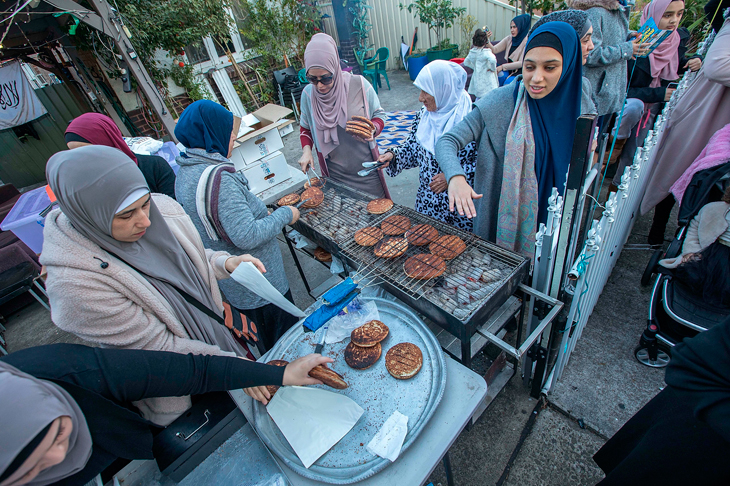
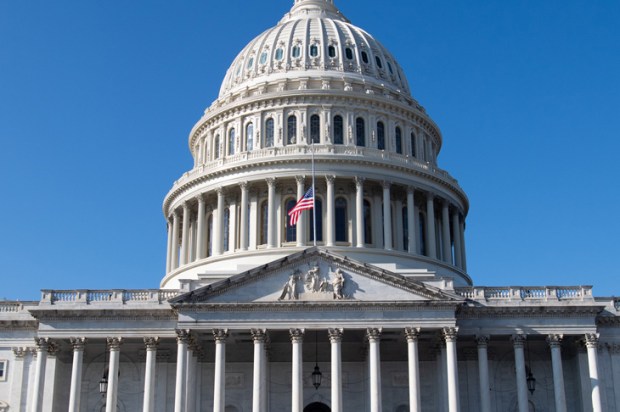
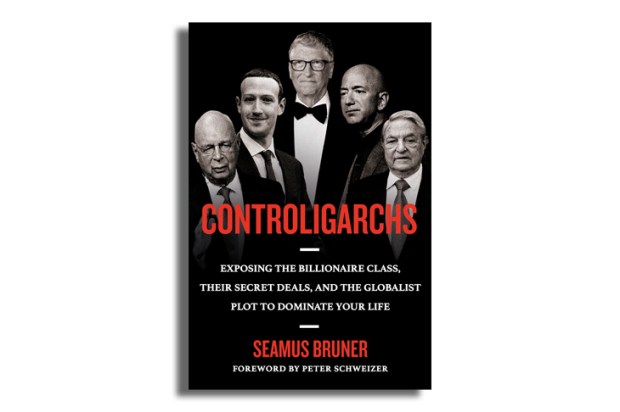
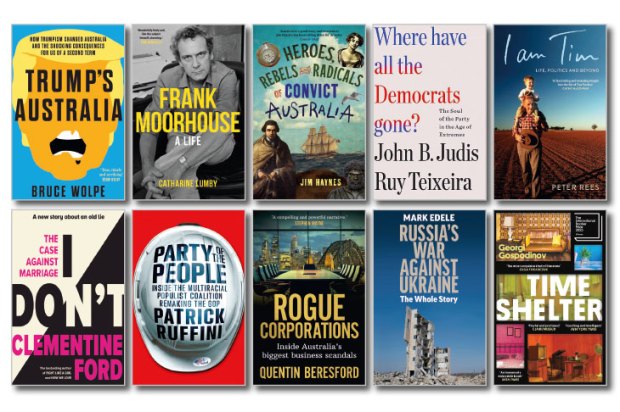

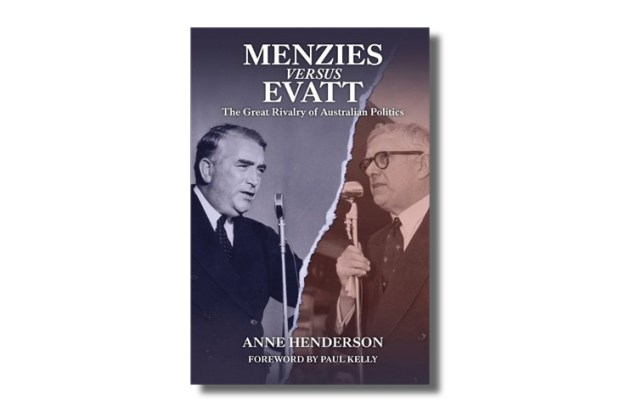
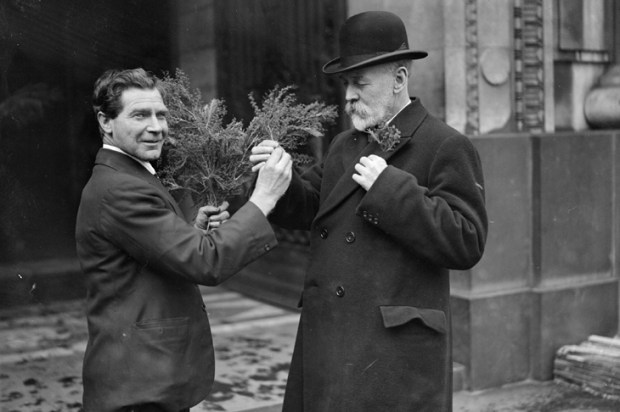






Comments
Don't miss out
Join the conversation with other Spectator Australia readers. Subscribe to leave a comment.
SUBSCRIBEAlready a subscriber? Log in